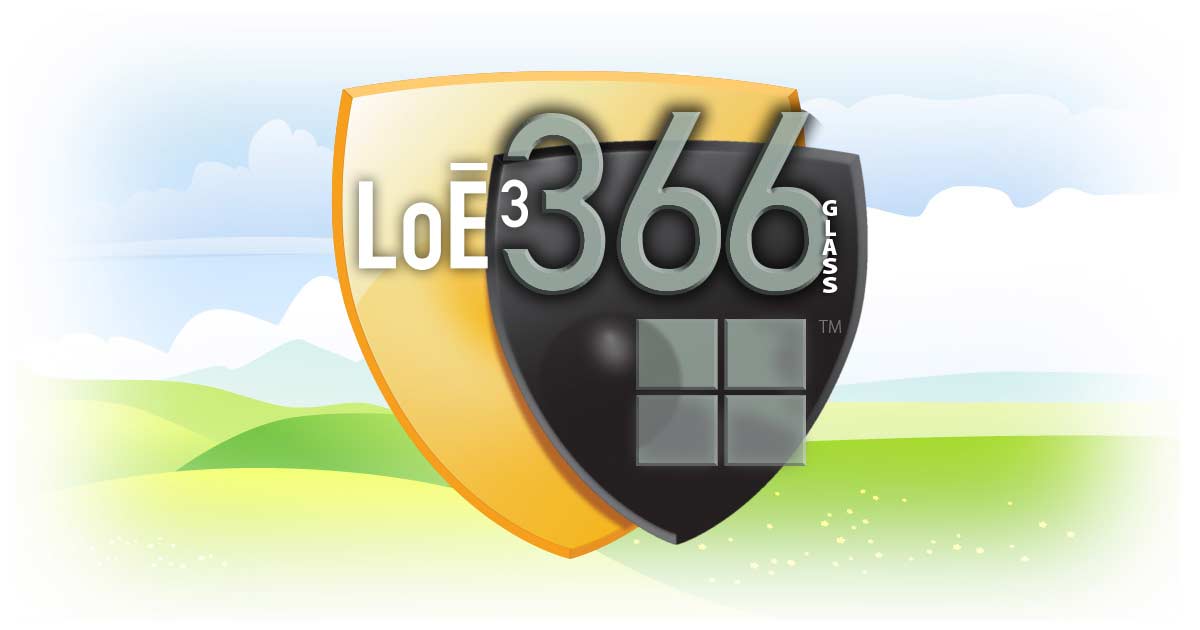Insights > Article > Posted: 2025-Mar-21, Updated: 2025-Mar-31
Stay Cool This Summer: The Benefits of Energy-Efficient Windows for Your Home
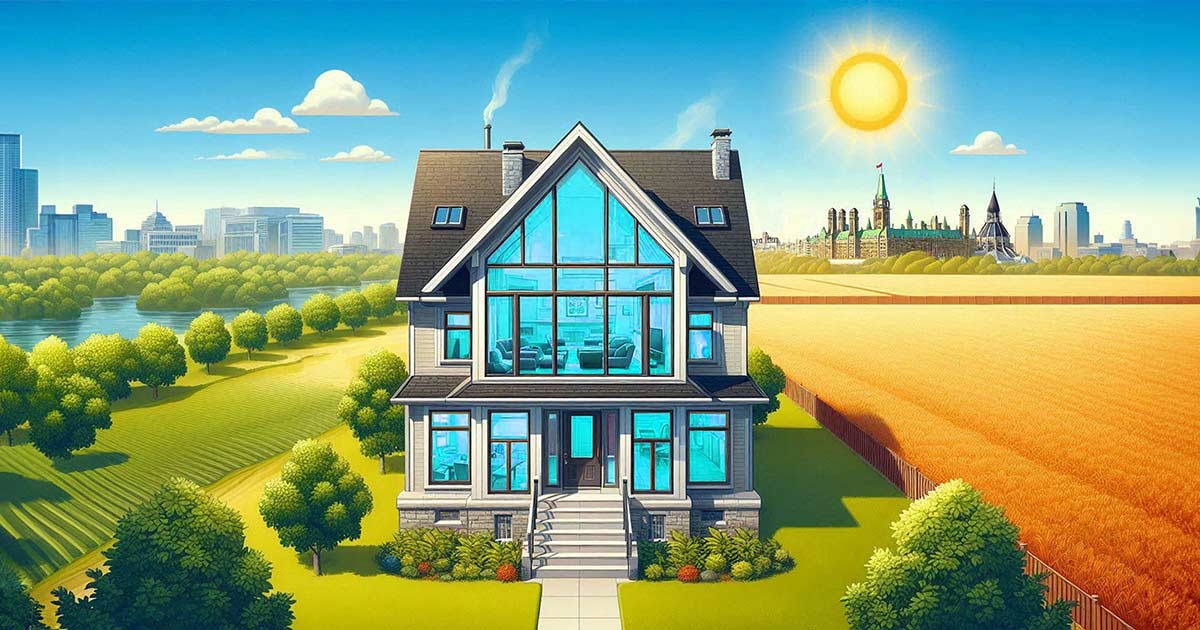
Hey Ottawa - you know it's coming!!! The scorching heat of summer, and with it, the challenge of maintaining indoor comfort. Energy-efficient windows offer a proactive solution, harnessing innovative technologies to minimize heat transfer and keep homes comfortable year-round.
Beating the summer heat - the importance of energy-efficient windows
Ottawa's summers can bring intense heat, driving up indoor temperatures and increasing energy consumption. Energy-efficient windows are essential for keeping homes cool and comfortable while also reducing utility costs.
1. Low-emissivity (Low-E) coatings
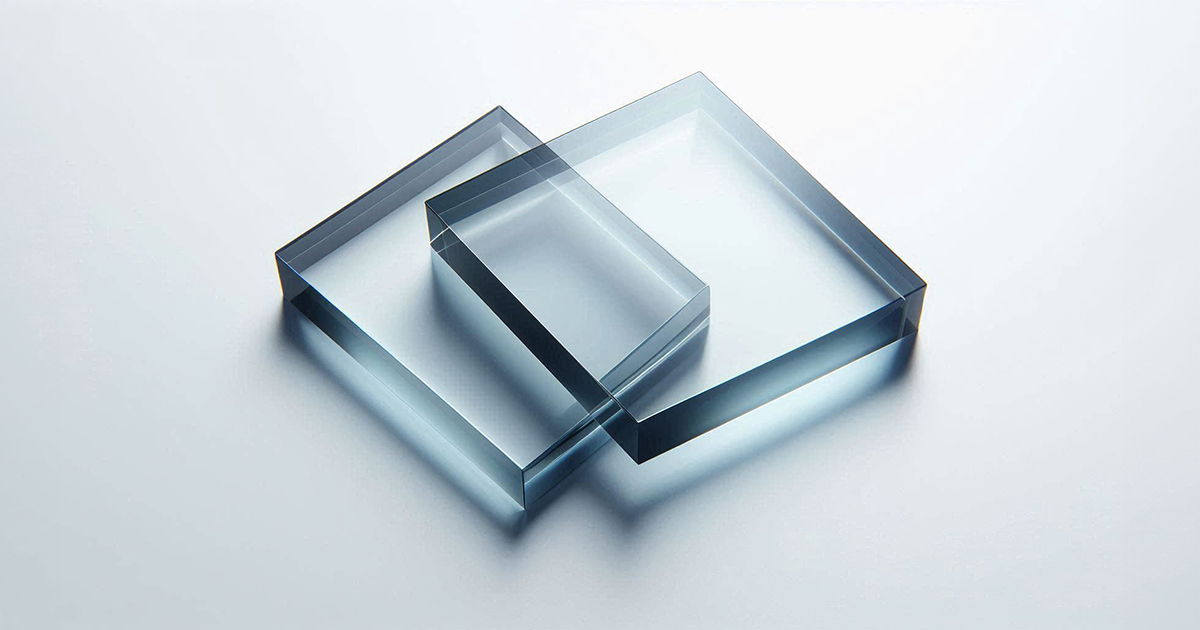
Low-E coatings are thin layers of metallic or metallic oxide materials applied to the surface of glass. These coatings are designed to improve the energy efficiency of windows by controlling the transfer of heat and infrared and ultraviolet light.
Low-E coatings help improve the thermal insulation of the window, making it more energy-efficient. Note: In certain lighting situations, Low-E coatings may appear to have a grey, green, brown, or blue tint depending on the manufacturer of the product. There are two processes used in the production of Low-E coatings:
- Hard-Coat Low-E: Also known as pyrolytic coatings, these are applied during the glass manufacturing process. They are durable and scratch-resistant but have a slightly lower performance compared to soft-coat low-E.
- Soft-Coat Low-E: Applied as a thin layer after the glass is manufactured, soft-coat low-E coatings provide superior energy efficiency. They are more delicate and require protection within the window assembly.
Are Low-e windows a good choice for a hot Ottawa summer?
Yes, low-E windows are a good choice for helping to reduce the effects of a hot Ottawa summer. They offer several benefits:
- Reduce Heat Gain: They reflect solar heat, keeping your home cooler and reducing the need for air conditioning.
- Lower Energy Bills: Improved insulation means less energy is needed for cooling, leading to lower electricity costs.
- Comfort: They help maintain a consistent indoor temperature and reduce glare from the sun.
- UV Protection: They block harmful UV rays, protecting your furnishings from fading.
Overall, low-E windows can significantly enhance comfort and energy efficiency during the hot summer months in Ottawa.
PROS
- Lower Cooling Costs: Low-e windows keep your home cooler, reducing the need for air conditioning
- Environmental Benefits: Less energy is used for cooling, reducing your carbon footprint
- Better Insulation: Help maintain a consistent indoor temperature
- Heat Reduction: Reflects heat away, keeping the inside cooler
- UV Protection: Blocks harmful UV rays, preventing the fading of furniture and flooring
- Comfortable Lighting: Less glare from the sun, making rooms more comfortable
- Moisture Control: Reduces moisture build-up on windows
- Privacy: A slight tint produced by low-e-coated windows can offer a little more privacy than non-low-e-coated windows.
CONS
- Expensive: More costly than regular windows
- Tinted Look: Can slightly alter the colour of the glass
- View Distortion: Might change the view slightly
- Expert Installation Needed: Requires professional installation for best results
- Costly Repairs: More complex and expensive to repair or replace
- Some Heat Gain: If not selected carefully, some types may still allow heat to enter
- Window Treatments: Some coverings might interfere with the coating
- Wears Over Time: The coating can degrade, needing replacement sooner than standard windows
Low-e glass summary
Low-E windows are great for keeping your home cooler and saving on energy bills in Ottawa's summer, but they come with higher costs and some potential downsides like installation challenges and slight changes in appearance.
2. Double-pane glass

A double-pane window, also known as a double-glazed window, consists of two panes of glass set into a frame. Between these glass panes, there is an intervening space filled with air or gas (usually argon). This design provides better insulation for your home by helping to prevent the outside air temperature from significantly affecting the indoor temperature. These windows are now standard for both new construction and replacement windows.
PROS
- Better Insulation: The air or gas-filled space between the panes acts as an insulator, reducing heat loss in winter and heat gain in summer
- Lower Energy Bills: Improved insulation leads to lower heating and cooling costs
- Temperature Regulation: Helps maintain a consistent indoor temperature, reducing cold drafts in winter and excessive heat in summer
- Noise Reduction: The extra pane of glass and the insulating layer reduce outside noise
- Reduced Carbon Footprint: By decreasing the energy needed for heating and cooling, double-pane windows help reduce greenhouse gas emissions
- Less Moisture Build-Up: The insulating layer helps prevent condensation on the interior glass surface
- Increased Lifespan: Double-pane windows are generally more durable and longer-lasting than single-pane windows
- Attractive to Buyers: Energy-efficient features can increase the value and marketability of a home
CONS
- More Expensive: Double-pane windows are more expensive than single-pane windows, which can be a significant upfront investment
- Professional Installation Needed: Proper installation is crucial to ensure performance, which might require skilled labour
- Replacement Issues: If a pane breaks or the seal fails, repairs can be more complex and costly than with single-pane windows
- Condensation Between Panes: If the seal between the panes fails, condensation can form between the panes, reducing clarity and insulating performance
- Repair Costs: Seal failure can be expensive to repair as the entire window unit might need to be replaced
- Heavier: Double-pane windows are heavier than single-pane windows, which can complicate installation and require stronger window frames
- Thicker Frames: The need for a thicker frame to accommodate the double panes might not be as aesthetically pleasing to some homeowners
Double-pane glass summary
Double-pane glass windows offer significant benefits for the Ottawa climate, including better insulation, reduced energy costs, and increased comfort. However, they come with higher initial costs and potential issues like seal failure and the need for professional installation. Overall, the energy efficiency and comfort benefits make them a worthwhile investment for many homeowners in Ottawa.
3. Triple-pane glass
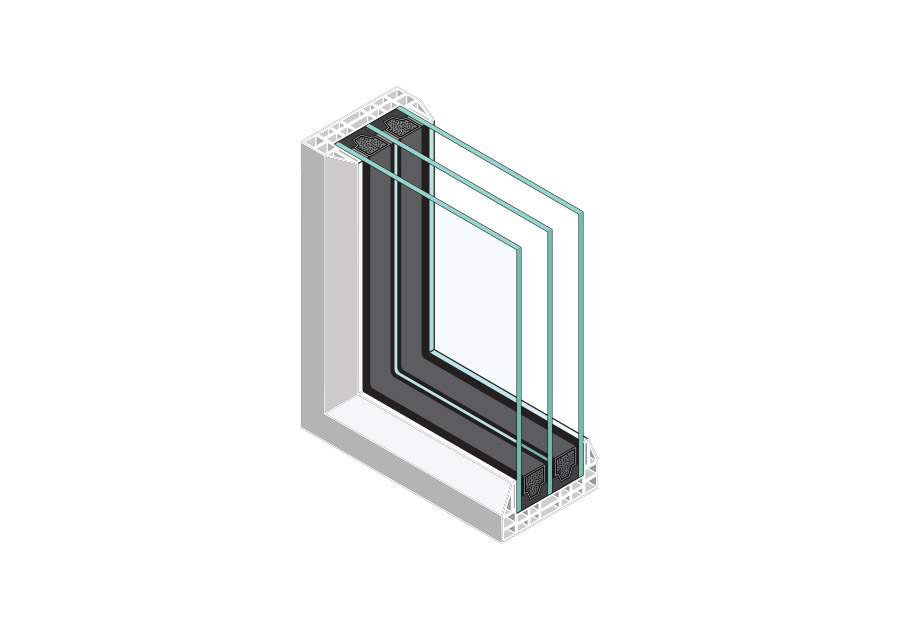
Triple-pane windows, also known as triple-glazed windows, consist of three layers of glass separated by insulating gas-filled spaces. This design enhances thermal efficiency and provides superior insulation compared to single-pane or double-pane windows.
Triple-pane glass shares many of the same pros and cons as double-pane glass, however, some subtle differences between them might be worth considering before you commit to one choice or another.
Pros of 3-pane vs. 2-pane windows
- Superior Insulation: Provide even better insulation, significantly reducing heat gain in the summer
- Energy Efficiency: Higher energy efficiency and better thermal performance
- Better Temperature Regulation: They offer superior temperature stability, keeping your home cooler and more comfortable during hot summer days
- Additional Coatings: Additional UV protective coatings, further protect your interior furnishings from fading
- Lower Cooling Costs: Decreased reliance on air conditioning, leading to lower energy bills
- Quieter Indoors: Better soundproofing, further reducing outdoor noise
Cons of 3-pane vs. 2-pane windows
- Higher cost: Higher initial cost due to more materials and advanced technology
- Weight and installation: Heavier, requiring stronger window frames and more labour-intensive installation
- Frame Requirements: May require larger or reinforced frames to support the additional weight and thickness
- Aesthetics: Thicker window units, which might not be as visually appealing to some homeowners
- Potential Diminishing Returns: Added energy efficiency might not justify the higher cost, particularly if the summer heat is not extreme
Triple-pane glass summary
Triple-pane windows are an advanced window option that offers superior energy efficiency, comfort, and noise reduction, making them particularly beneficial in climates with extreme temperatures. They are a more expensive investment but can provide long-term savings on energy bills and improved home comfort.
4. Factory-applied window tinting
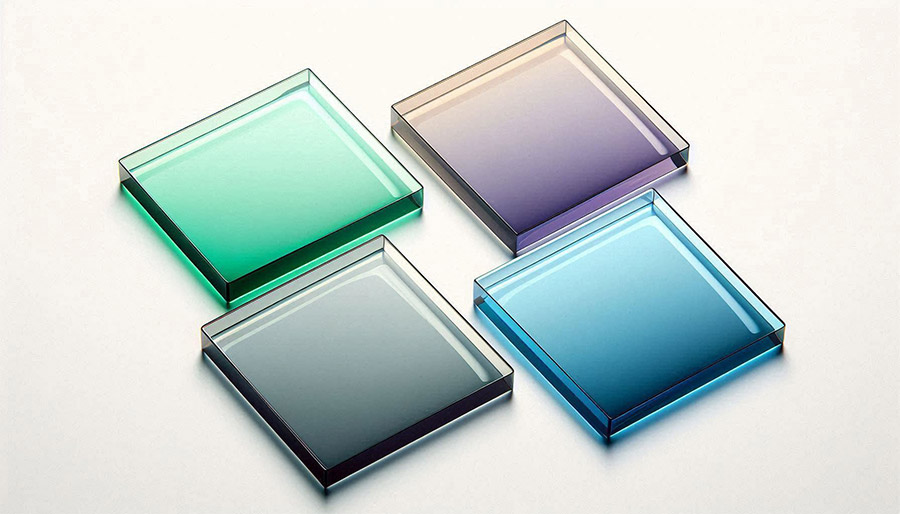
Factory-applied window tints can provide several benefits for residential properties, including energy efficiency (very low compared to Low-e coating and multiple pane applications) and cost savings. However, the actual extent of these benefits can vary depending on factors such as the type of window tint, the climate in which the home is located, the orientation of the windows, and the overall energy efficiency of the home's insulation and HVAC systems. While window tints can contribute to energy savings and reduce costs, it's essential to consider these factors and potentially consult with a professional to assess the specific impact on your home.
PROS
- High Quality: Tint is applied perfectly and lasts longer without peeling or fading
- Better Look: Tints blend seamlessly with the window, making them look nicer
- UV Protection: They block harmful UV rays, protecting your furniture from fading
- Privacy and Security: Makes it harder for outsiders to see in
- Less Glare: Reduces sunlight glare, making it easier to watch TV or work on screens
- Easy to Clean: No extra layer to damage during cleaning
CONS
- Costly: More expensive upfront and to replace if broken
- Permanent: Hard to change once installed; no flexibility
- Can Be Too Dark: Might reduce natural light too much
- Limited Options: Not all manufacturers offer it, and custom options may take longer
- Resale Impact: Future buyers might not like the tint, affecting resale value
Window tints, whether factory-applied or aftermarket, offer various benefits such as energy efficiency, UV protection, glare reduction, and enhanced privacy. Aftermarket tints may void window warranties due to alterations, installation errors, heat buildup, moisture issues, or manufacturer policies. Factory-applied tints are less likely to void warranties since they're integrated into the original window design. It's crucial to review warranty documentation and consult with manufacturers or professionals to understand warranty implications before tinting windows.
It's never a wrong time to order your windows
Upgrade to energy-efficient windows today and enjoy year-round comfort. From beating the summer heat to staying cosy during fall and winter, these windows enhance your home’s efficiency and well-being.
Related articles
Need more information?
Upgrade your windows with confidence. Want to know more about battling the summer heat, give us a call or request information via our contact form. We’d be happy to answer all of your questions.
